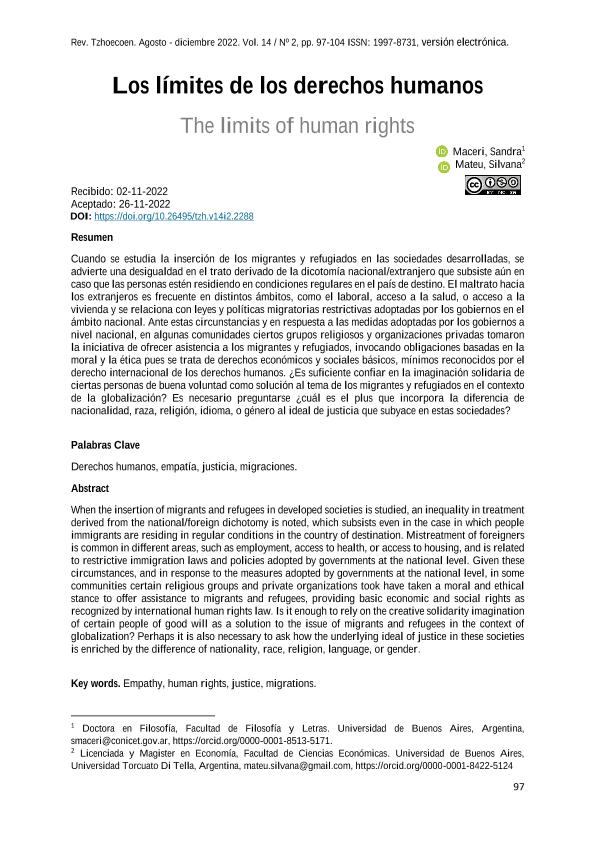Artículo
Cuando se estudia la inserción de los migrantes y refugiados en las sociedades desarrolladas, se advierte una desigualdad en el trato derivada de la dicotomía nacional/extranjero que subsiste aún en caso que las personas estén residiendo en condiciones regulares en el país de destino. El maltrato hacia los extranjeros es frecuente en distintos ámbitos, como el laboral, el acceso a la salud, o el acceso a la vivienda y se relaciona con leyes y políticas migratorias restrictivas adoptadas por los gobiernos en el ámbito nacional.Ante estas circunstancias y en respuesta a las medidas adoptadas por los gobiernos a nivel nacional, en algunas comunidades ciertos grupos religiosos y organizaciones privadas tomaron la iniciativa de ofrecer asistencia a los migrantes y refugiados, invocando obligaciones basadas en la moral y la ética pues se trata de derechos económicos y sociales básicos mínimos reconocidos por el derecho internacional de los derechos humanos.¿Es suficiente confiar en la imaginación solidaria de ciertas personas de buena voluntad como solución al tema de los migrantes y refugiados en el contexto de la globalización? Tal vez sea necesario preguntarse además, cuál es el plus que incorpora la diferencia de nacionalidad, raza, religión, idioma, o género al ideal de justicia que subyace en estas sociedades. When the insertion of migrants and refugees in developed societies is studied, an inequality in treatment derived from the national/foreign dichotomy is noted, which subsists even in the case in which people immigrants are residing in regular conditions in the country of destination. Mistreatment of foreigners is common in different areas, such as employment, access to health, or access to housing, and is related to restrictive immigration laws and policies adopted by governments at the national level. Given these circumstances, and in response to the measures adopted by governments at the national level, in some communities certain religious groups and private organizations took have taken a moral and ethical stance to offer assistance to migrants and refugees, providing basic economic and social rights as recognized by international human rights law. Is it enough to rely on the creative solidarity imagination of certain people of good will as a solution to the issue of migrants and refugees in the context of globalization? Perhaps it is also necessary to ask how the underlying ideal of justice in these societies is enriched by the difference of nationality, race, religion, language, or gender.
Los límites de los derechos humanos
Título:
The limits of human rights
Fecha de publicación:
12/2022
Editorial:
Universidad Señor de Sipán
Revista:
Tzhoecoen
ISSN:
1997-8731
Idioma:
Español
Tipo de recurso:
Artículo publicado
Clasificación temática:
Resumen
Palabras clave:
DERECHOS HUMANOS
,
EMPATÍA
,
JUSTICIA
,
MIGRACIONES
Archivos asociados
Licencia
Identificadores
Colecciones
Articulos(IIEP)
Articulos de INST. INTER. DE ECONOMIA POLITICA DE BUENOS AIRES
Articulos de INST. INTER. DE ECONOMIA POLITICA DE BUENOS AIRES
Citación
Maceri, Sandra Beatriz; Mateu, Silvana; Los límites de los derechos humanos; Universidad Señor de Sipán; Tzhoecoen; 14; 2; 12-2022; 97-104
Compartir
Altmétricas




